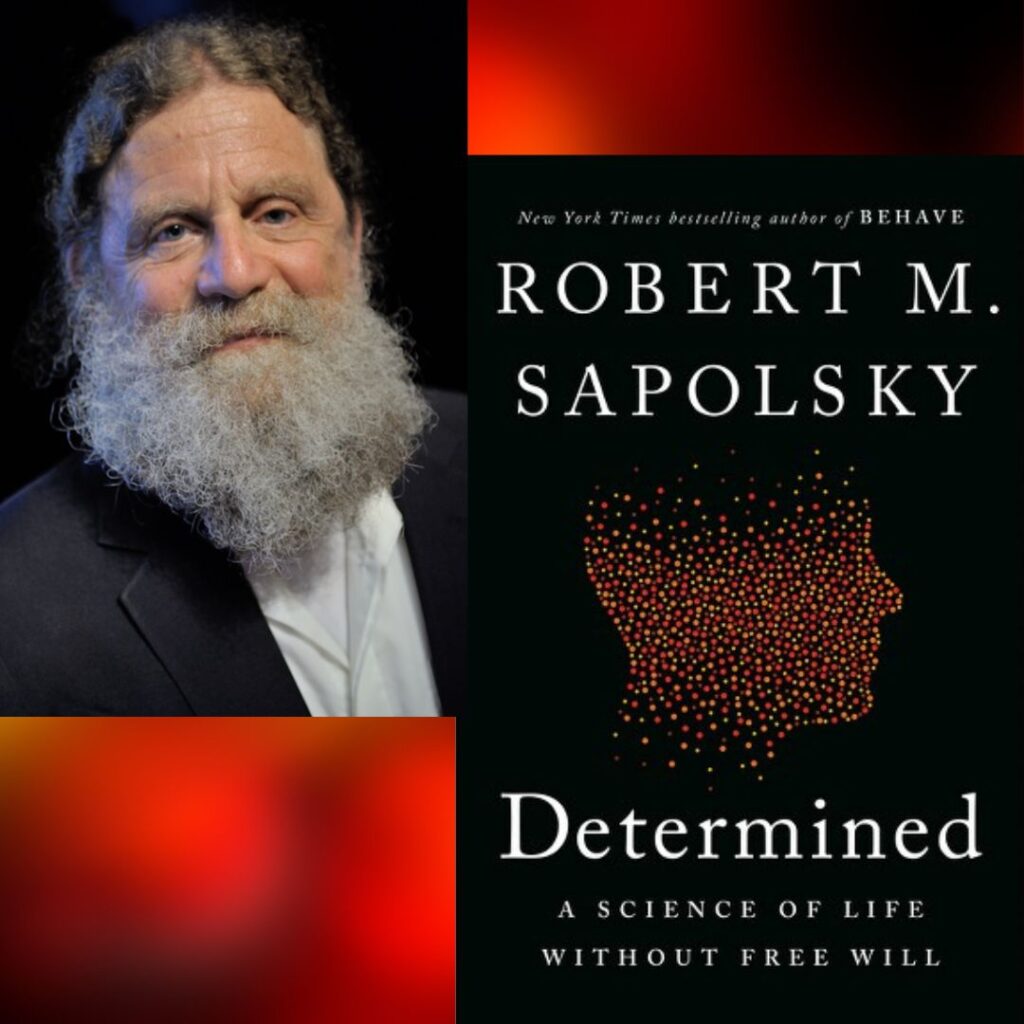
If it were up to you… Implications for neuroscience, behavioral science, and a more humane society
We welcome you to join us virtually (via Zoom) for our January eWEAR Seminar.
Date: Monday, January 22nd from 12:30 pm to 1:30 pm PST
Location: Zoom
Registration: Please click here to register
Have a question for Dr. Sapolsky? Ask your question here.
A conversation with Prof. Robert Sapolsky, extraordinary thinker and bestselling author

Robert M. Sapolsky
Professor of Biology, of Neurology and Neurological Sciences, and of Neurosurgery, Stanford U.
Bio: Dr. Robert Sapolsky is John A. and Cynthia Fry Gunn Professor and professor of biology, neurology and neurological sciences, and of neurosurgery at Stanford University. He is the recipient of a MacArthur Foundation “Genius Grant.” He is also a research associate at the Institute of Primate Research operated by the National Museums of Kenya in Nairobi. Professor Sapolsky earned his A.B. summa cum laude in Biological Anthropology from Harvard University and his Ph.D. in Neuroendocrinology from The Rockefeller University in New York. His teaching awards include Stanford University’s Bing Award for Teaching Excellence and an award for outstanding teaching from the Associated Students of Stanford University. He regularly contributes to magazines and journals such as Discover, Science, Scientific American, Harper’s, and The New Yorker. Dr. Sapolsky is the author of several books, including Stress, the Aging Brain and the Mechanisms of Neuron Death; The Trouble with Testosterone; Why Zebras Don’t Get Ulcers: A Guide to Stress-Related Diseases and Coping, which was a finalist for the Los Angeles Times Book Award, and A Primate’s Memoir. Dr. Sapolsky’s book, Behave, was a New York Times bestseller and named the best book of the year by The Washington Post and The Wall Street Journal. His most recent book, Determined, proposes that “free will” in decision making is fantasy “that there is some separate self telling our biology what to do.”
Purchase Dr. Robert Sapolsky’s book online or at the Stanford Bookstore

